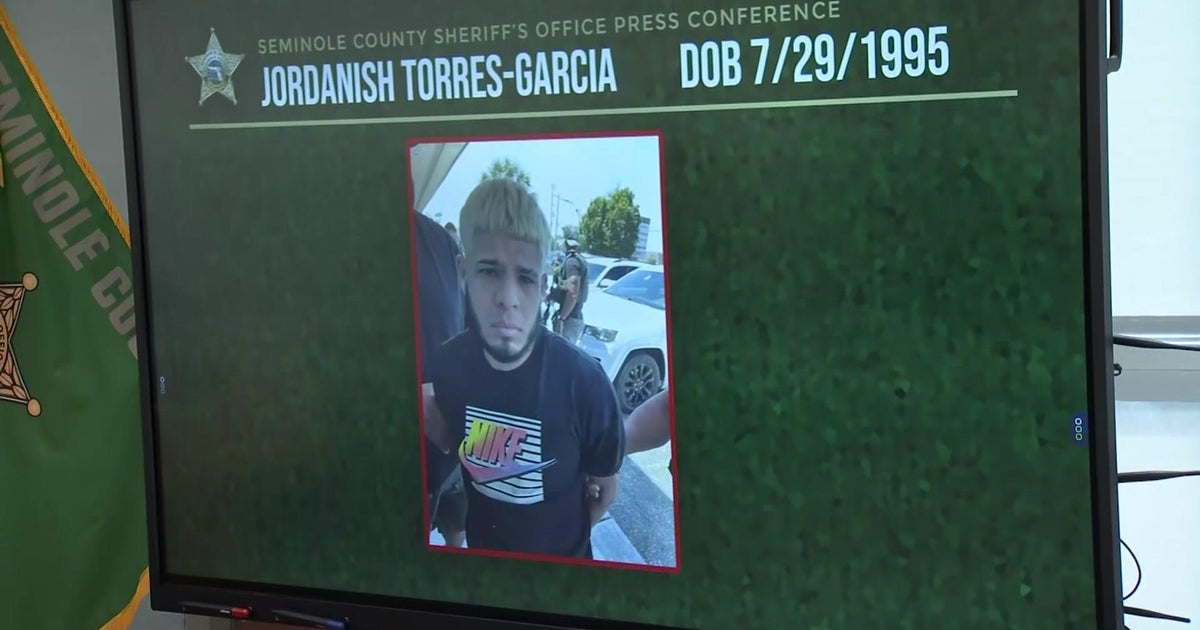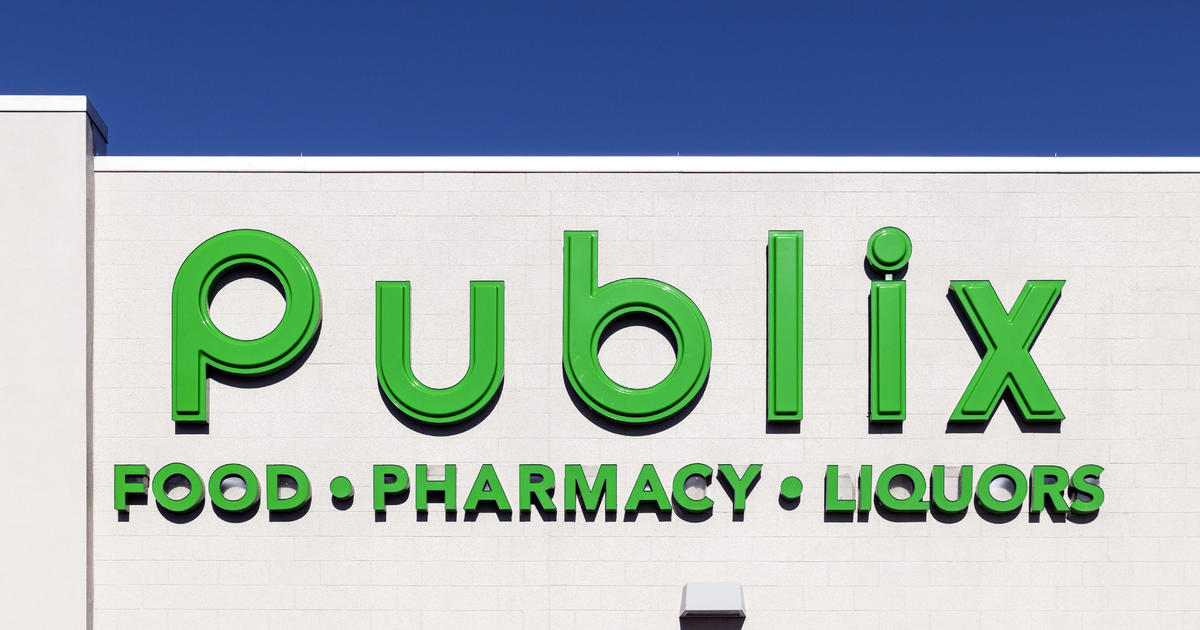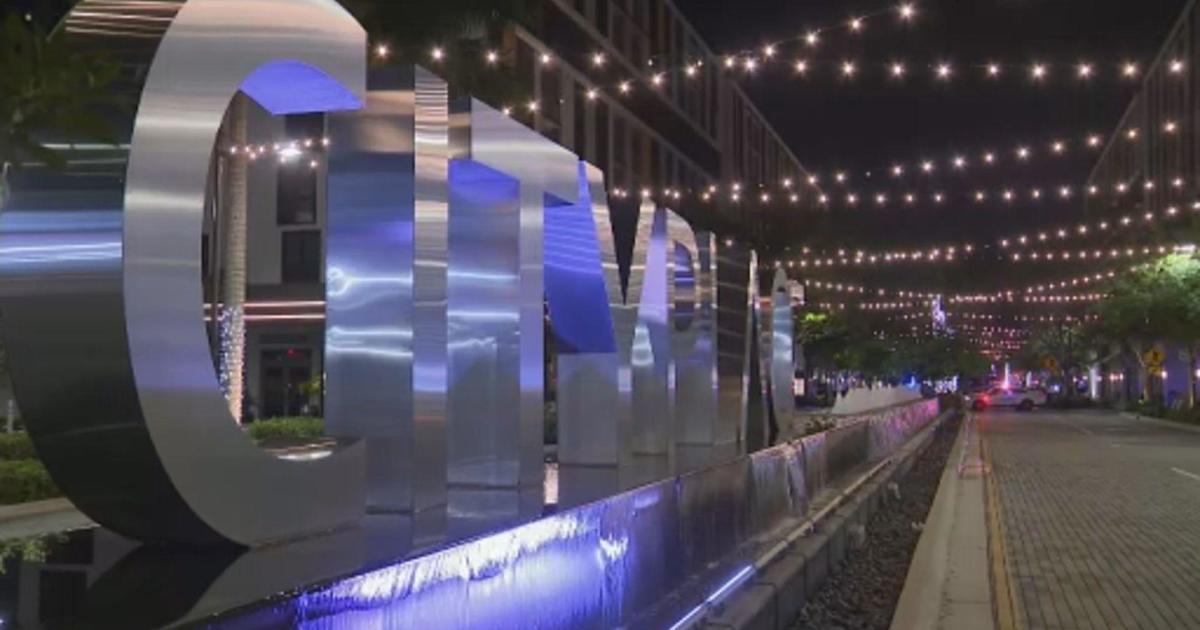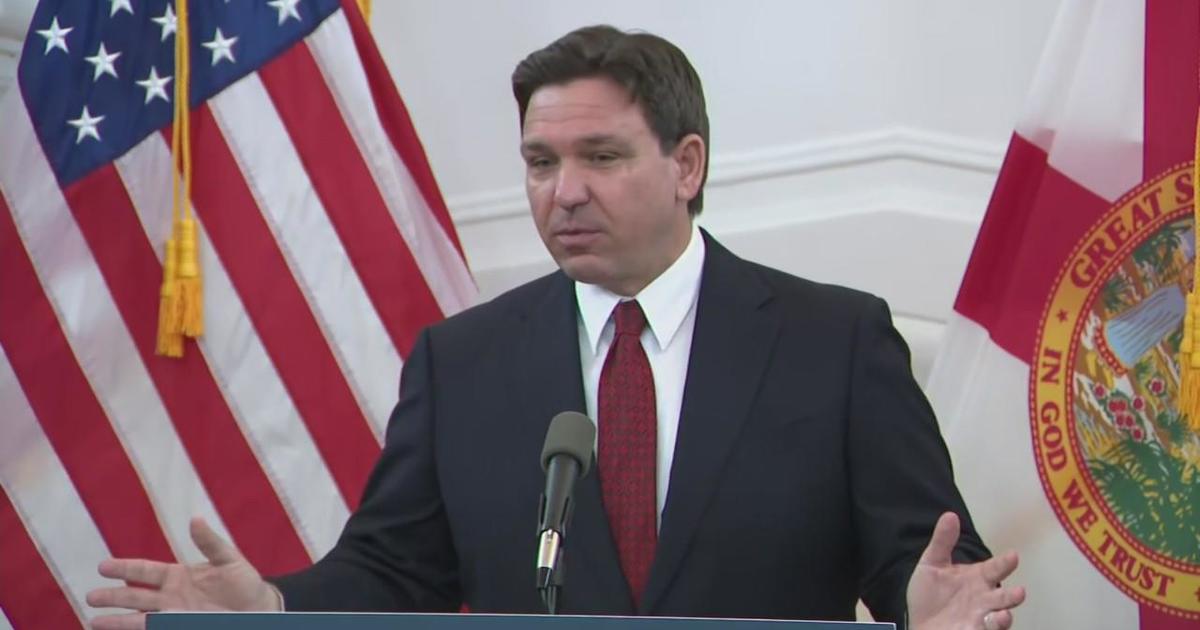EXCLUSIVE: Previously Unheard 911 Calls In Parkland Shooting Reveal Questions Over Handling, Transfers
Follow CBSMIAMI.COM: Facebook | Twitter
PARKLAND (CBSMiami) – On February 14, as bullets ripped into classrooms and hallways in the Freshman Building at Marjory Stoneman Douglas High School, more than 15 students and teachers grabbed their cellphones and called 911 for help.
Even though Stoneman Douglas is in the city of Parkland, those cellphone calls rang at the 911 call center in the city to the south of the school, Coral Springs.
That's because those calls were routed to a cell tower just a short distance from the school on the south side of the Sawgrass Expressway.
CBS4 News obtained a large amount of those calls after filing a public records request with the Broward Sheriff's Office asking for their release.
The calls reveal more than the terrified and desperate pleas of people in the building, begging for law enforcement to respond right away.
The calls also spur questions about how the calls were handled and how the two agencies that responded to the shooting — Coral Springs and the Broward Sheriff's Office — handled the calls.
"PLEASE, DON'T"
One of the first calls Coral Springs 911 dispatchers received came as confessed school shooter Nikolas Cruz roamed the halls of the freshman building.
We know this because in the background of the call you hear the loud, concussive noise of gunfire from a semi-automatic weapon.
The call was a from a student who told a dispatcher that he was on the 3rd floor of the Freshman Building. The terror was palpable.
"Are they getting closer to you?" the dispatcher asked.
"Yeah," the student responded.
The dispatcher asked whether the classroom door was locked and wanted to know if there was imminent danger.
"The shooter's not in the classroom, right?" the dispatcher asked.
"No," the student said.
And after 90 seconds, after the gunshots ended, the dispatcher reassured the student that help was on the way. The dispatcher then said she had to go.
"Ok. Listen to me," the dispatcher said. "I've gotta answer some more calls so I'm gonna let you go. You guys stay in the classroom. If for some reason, they get in your classroom, call me back."
"Please don't," said the student.
"I promise you, we have a lot of people coming," said the dispatcher.
The dispatcher did not end the call but seconds later, the call dropped. A dial tone is heard.
Seconds later, another call.
"Hi, I'm a teacher still on the 3rd floor of 1200 building," the voice said.
The teacher asked for help and the dispatcher wanted to know if anyone was hurt.
The dispatcher reminded the teacher to keep all cellphones on vibrate and to stay quiet.
"I promise we have a lot of units coming to you," the dispatcher said. "Obviously our phones are…everybody's calling but I want you to continue to just monitor. Call us back if you hear any more gunshots or anything like that, ok?"
The teacher said, "I can't, I can't stay on the line?"
"You can but I just, I, we have seven other lines ringing that I have to pick up," the dispatcher said. "That's the only thing. Ok? Call us back if anything changes. Ok?"
The call ends.
Neither of those calls were transferred to the lead agency responsible for investigating the shooting, the Broward Sheriff's Office.
And of the more than 15 calls received by Coral Springs 911 dispatchers from students and teachers inside the Freshman Building, BSO says only 3 were transferred to them.
"I'M CALLING BSO…"
As the chaos began to unfold inside the Freshman Building, a calm, yet urgent voice answered the phone at the Coral Springs 911 call center.
This is what he heard, as gunfire is heard in the background.
"Hello, I'm at Stoneman Douglas High School and I think there's a shooter," the caller said quickly.
The dispatcher immediately reached out to BSO.
"We're getting multiple calls," the BSO dispatcher said, adding that BSO was sending units to the school.
The BSO dispatcher asked if Coral Springs was sending "rescue" to the school and the Coral Springs dispatcher said that paramedics could not enter the school until it was safe for them to enter the building.
In another call, in the fog of the violence, a key detail about the shooter's whereabouts appears to have been miscommunicated to BSO.
A person from inside Stoneman Douglas called 911 and a Coral Springs 911 dispatcher answered.
The dispatcher asked if the person was safe and then began inquiring about the location of the shooter.
911 DISPATCHER: "Do you know where they're at?"
CALLER: "They're in the Freshman Building, it's in the student lot."
911 DISPATCHER: "In the student lot?"
CALLER: "Yes."
911 DISPATCHER: "Do you know how many shooters there are?"
CALLER: "No."
With that information, the 911 dispatcher attempted to connect the call to BSO, however the caller either hung up or their phone disconnected and the caller was not on the line with BSO picked up seconds later. The dispatcher relayed the information he had.
"This person is advising there is a shooter at Douglas in Parkland," the dispatcher said. "(The caller) is in a safe spot. He's advising the shooter is in the north parking lot."
It's unclear where the shooter was at that precise moment but reporting indicates that Cruz left the building with a group of students.
Despite the fact that many of the calls from inside the school were not transferred to BSO, on the calls you hear Coral Springs dispatchers in a wide range of situations.
They attempt to help students in the building do CPR on victims, reassure parents of students who are desperate for information and offering kind, uplifting words for people inside the building concerned for their safety and the safety of their friends and teachers.
CBS4 News played a number of the Coral Springs 911 calls for Chuck Lanza, former Emergency Management Director for Broward County. He said he was impressed by the work of the dispatchers.
"Very calm, very reassuring to the children," Lanza said. "In terms of their communications skills, they did a nice job."
EXPERTS WEIGH IN
Experts say getting information from an unfolding crisis is crucial because it gives first responders and law enforcement firsthand and up to the minute information about what's happening.
In the case of a school shooting, it enables law enforcement to possibly determine where the shooter is in the school and how to stop him.
It could also speed up the process to make it safe for paramedics to go into a building and begin treating the injured.
Lanza said that information is critical for first responders who go into these situations "blind", on many occasions.
"Best case scenario they would have transferred all those calls over to BSO after they got the information they needed for EMS many of them didn't get transferred over and that could have caused some problems on the BSO side," Lanza said.
National experts in emergency dispatch say these types of issues where one city or agency receives 911 calls for a neighboring city or agency are not new.
They've been occurring for a long time as city and county borders do not obey the laws of cellphone technology.
Once a cellphone call is made, it goes to the nearest tower, wherever that tower is located, and is answered by the 911 dispatcher in that city or county.
In Broward, Coral Springs is one of only two cities that still operate their own 911 call center after the county moved to a regional system several years ago.
There are many reasons why cities would choose to do that and in a July article, The Miami Herald reported that Coral Springs leaders said "the city was concerned about losing autonomy and a "hometown feel," as well as having reservations about the potential organizational structure."
However, Lanza said there are reasons that not all cities have joined the Broward regional system.
"The problem is there's legacy issues in Broward County that have caused people to not feel comfortable joining the crowd," he said.
So the current system can lead to the issue of call transfers. The National Fire Protection Association said they suggest that these calls be transferred to the lead agency within 30 seconds. But that is simply a guideline and not a mandatory requirement.
Chris Carver, Director of Public Safety Access Point/911 Operations for the National Emergency Number Association, said these are challenging situations.
"When it does happen it depends on the local agency on how they handle it and policies and procedures they have in place to handle those call flows," Carver said.
Several experts in 911 dispatch said that it's possible the bulk of these calls did not get transferred because the information was considered repetitive and dispatchers didn't want to unduly burden BSO.
Yet even if the calls aren't transferred, Carver said his organization advocates for better sharing of information, even if agencies in the same county continue to operate their own 911 call center.
He said it's possible for agencies to use technology to share real-time notes on unfolding situations, for instance.
"The best practices nationwide are leveraging technology, training and operational procedures to share critical information between agencies," Carver said.
INVESTIGATIONS CONTINUE
We asked both the Broward Sheriff's Office and the city of Coral Springs to respond to our questions regarding how these 911 calls were handled and how it might have impacted the response to the tragedy.
However, both agencies declined to answer questions citing the ongoing investigations by the Marjory Stoneman Douglas Public Safety Commission and the Florida Department of Law Enforcement.
One of the questions raised by our reporting is whether any outcome would have changed at the school if all of the calls Coral Springs 911 calls had been transferred immediately to BSO.
Experts doubt that anything would have changed but the bottom line is that we'll never know.
The shooter was in and out of the Freshman Building in less than 7 minutes, making it extremely difficult for responding law enforcement officers to arrive in time to confront him.
However, experts say there was one person who could have challenged the shooter and that's Broward Sheriff's Office School Resource Officer Scot Peterson.
Peterson was on campus, armed and aware that something bad was happening.
"Be advised that we have possible, could be firecrackers, I think we have shots fired, possible shots fired, 1200 building," he radioed to BSO about two minutes after the shooting began. However, Peterson remained outside the Freshman Building.
MOVING FORWARD
The way the shooting was handled and the response by law enforcement received much scrutiny in the wake of the shooting and it's likely to become newsworthy again this week as the Marjory Stoneman Douglas High School Public Safety Commission delves into the issue of the 911 calls, radio transmissions from first responders and the informational notes created by dispatchers.
These items are on the commission's agenda for discussion on Tuesday.



